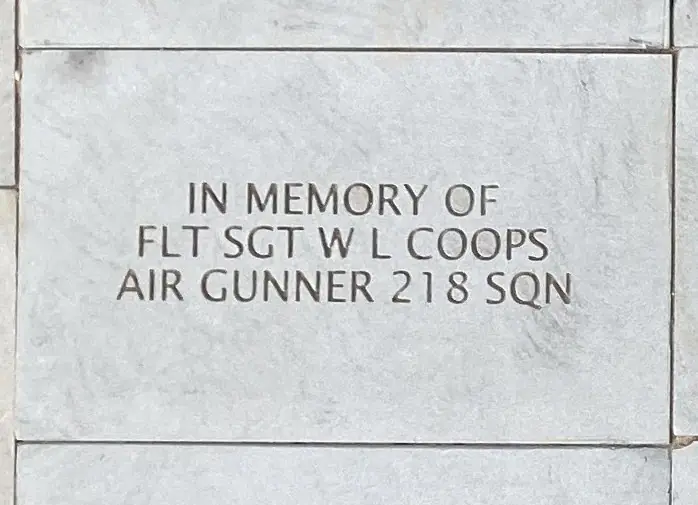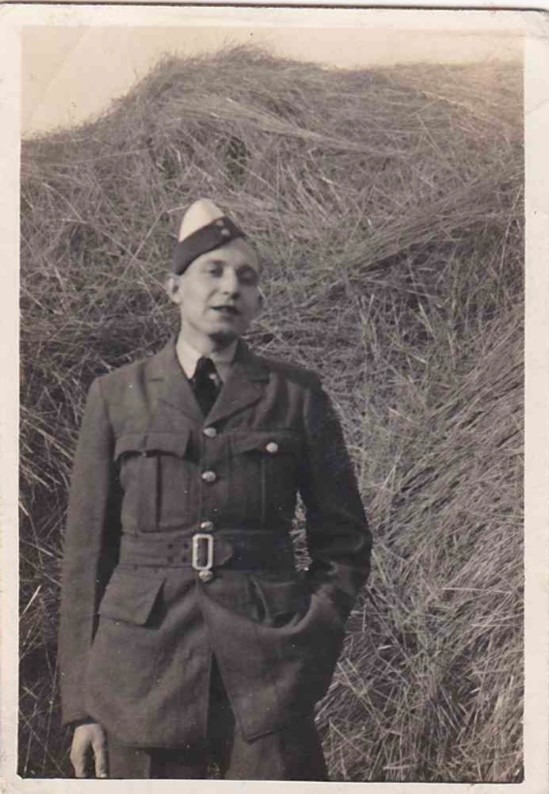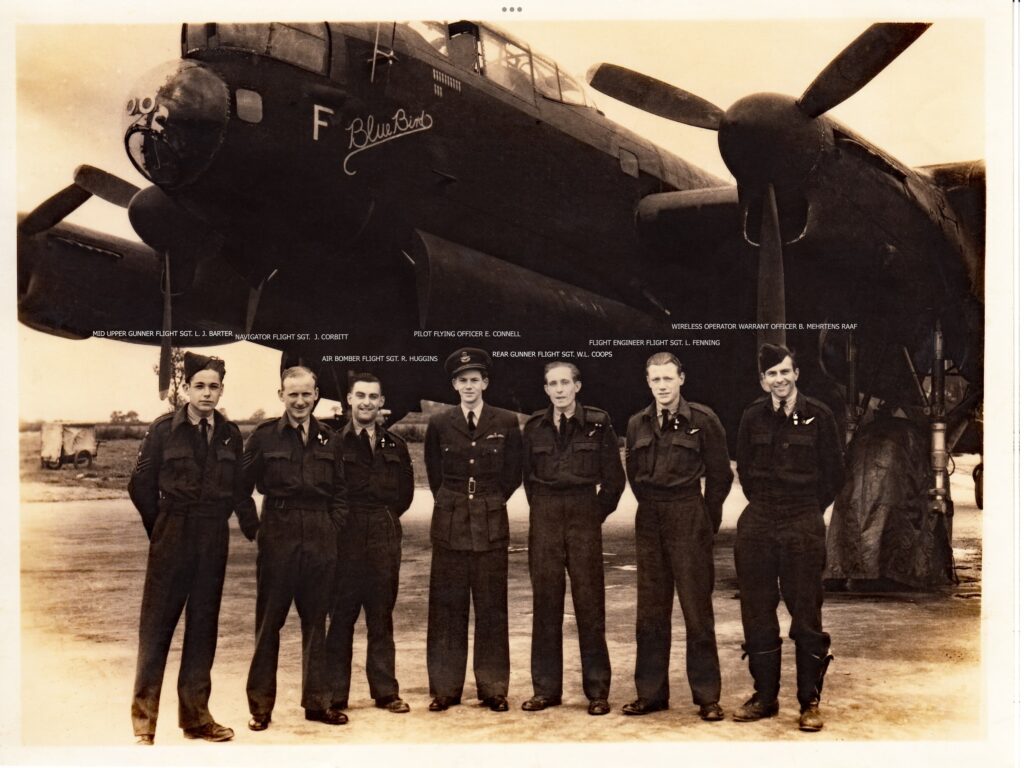
Flight Sgt Wilfred Leyland Coops 30th July 1924 to 23 September 2011
Dad, known as Ley to family, friends and crew members, was in a reserved occupation and did not have to go to war. He showed his intentions early though by joining the Air Training Corps as a teenager. He never talked about his time in the RAF, his only comment being that it was terrifying and they had a tot of whiskey to help them get on board. I remember once asking him as a child how he lost the end of his finger, the look on his face told me that he couldn’t say, couldn’t explain. His medals and log book were hidden away, a potent reminder of what he had experienced, kept safe by my mum who was so proud of what he did. It is hard to believe that this quietly spoken man had endured so much. He had left the war behind, coming home with schrapnel and a shortened finger but alive. He suffered the very real after-effects in silence.
After researching his war history I now know so much more. Initially all I had was a single photo of him in uniform. Over time I managed to contact members of the crew’s families along other interested parties. All have all been gracious and helpful. One such person is Keith Vincent. He had found a photo of the crew years before and wanted to know who they were and why his parents had it. Between us we managed to identify each crew member and realised that his parents had arranged dances for the airmen and by doing that they had met some of the crew. He then sent me the restored crew photo I am sharing today.
We now know that dad signed up at the age of seventeen and started training as an air gunner after serving the six months waiting period for reserved occupations. In December 1944 he joined 218 Squadron as part of the Connell Crew. 218 Squadron was one of the elite squadrons, often leading missions. RAF Chedburgh was well equipped and comfortable by RAF standards so it is nice to think that between missions they could relax in comfort. The squadron was sponsored by the Gold Coast who ensured that the crews had little luxuries that they wouldn’t otherwise have had.
Dad took part in many missions over Europe as a mid upper then rear gunner. One mission was nearly fatal though. After losing two engines and losing altitude quickly, they managed to jettison the bombs over enemy territory and land safely at Juvincourt. They insisted on taking the next available flight home to continue to fly missions instead of having two weeks off while their Lancaster was repaired. Such brave men, ready to risk their lives as soon as possible instead of taking time off. They did manage to have an evening out in the town before they left where they thought they could meet some French girls. Much to their surprise, they were spat at because the allies had recently recaptured the Juvincourt airfield and the girls did not appreciate that their German boyfriends were now prisoners of war!
Dad also took part in Exodus, bringing home prisoners of war. It must have felt good to end his flying service bringing men home who cheered at the sight of the White Cliffs of Dover.
Most of the crew did manage to keep in touch after the war and their families are still in touch to this day, united by the pride they have in the crew and and a deeper understanding of what they went through. We all know though, that we can never truly understand what it was like for them, risking their lives day after day, enduring the long cold hours and knowing that each mission could be their last, knowing how many of their fellow crews had already been lost.
Just one of the many brave crews of Bomber Command, they stayed friends for the rest of their lives, sharing their memories and going to each other’s funerals until there was no-one left. To this day their experience has trickled down through the generations and still resonates, creating friendships with people who would otherwise have been strangers.
Thank you dad, for all that you did, for all that you endured when you could have stayed safely at home.
Written by Beverley Hovell with Simon Coops and Susan Thomas

